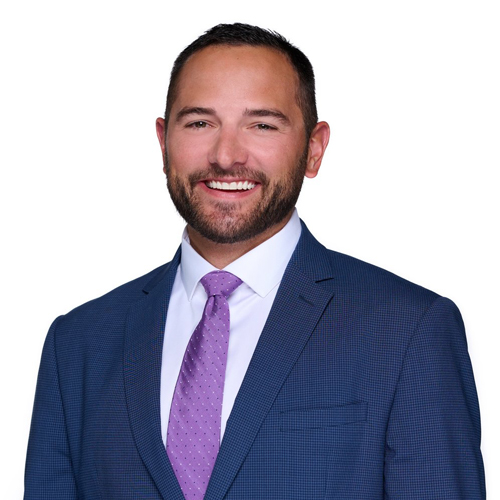Are you thinking of changing jobs? If you’re like most Americans, you just might be. According to a poll conducted by job search site Monster.com, an astounding 96% of Americans are considering a job change in 2023.¹ And this is fine – the American dream is one of upward mobility and freedom to choose where you work and where you live. In fact, this has historically been the case. You may be surprised that the average tenure of employment for those 25 and older has been about five years – for the past forty years.²
The 401(K) Landscape
However, with this trend of frequent job changes comes a complex financial landscape, particularly when it comes to managing retirement savings. The 401(K) retirement account appeared in 1978, and by the end of 1982, almost half of America’s largest employers were offering 401(K) plans to their employees.³
Navigating Job Transitions
The 401(K) serves as an indispensable tool for retirement planning, allowing tax-deferred contributions and growth, while its Roth counterpart provides tax-free growth and withdrawals. Transitioning between jobs might present some unexpected challenges to your retirement savings, but they don’t have to become obstacles. With proactive management and informed decision-making, an investor can navigate these issues and continue on a seamless path to retirement.
Your Rollover Options
Generally speaking, you have four options when it comes to your rollover.
- Keep your funds in your old 401(K)
- Move your funds to your new 401(K)
- Transfer your funds to an IRA
- Cash out your funds
To determine the best route for your funds, we typically want to compare the investment options of each 401(K) plan (your old one and your new one) and each plan’s fees.
Roll It Into a New 401(K)
A rollover may make sense if your old plan has higher fees and fewer options. However, the rollover may be a complex process, and your new employer may not allow a rollover. Additionally, you’ll have to purchase the assets available to you in your new plan, requiring careful research and analysis. On the other hand, your funds will be consolidated and allow for a more simplified rebalancing process as your risk profile changes to your life situation.
Maintain Funds in Your Old 401(K)
Conversely, if your new plan has higher fees and/or fewer investment options, you may want to keep those funds parked in your old 401(K). Keep in mind, though, that you will no longer be able to contribute to that 401(K). Again, though, your old employer may not allow you to keep your funds in their plan or rebalance your assets.
You also run the risk of ‘losing’ your 401(K). As of May 2023, estimates indicate that there are around 29.2 million neglected or forgotten 401(k) accounts, containing roughly $1.65 trillion in assets.⁴ Things can quickly become confusing if you change jobs often, leading you to lose your 401(K) documents or simply forget about them, potentially leading to a loss in your retirement savings potential.
Roll It Into an IRA
If you feel that neither option is viable, you may opt for an IRA rollover. In an IRA, you have much more control over your investments and, therefore, fees. Furthermore, you won’t have to worry about what to do should you change jobs again, and your funds will be consolidated, making it easier to conduct rebalancing procedures. You’ll need to carefully analyze the funds you want to purchase and rebalance your asset allocation as necessary unless you hire a wealth management firm to do it for you.
Convert It To a Roth
If your old 401(K) was a Roth, then you have no choice but to roll it over into another Roth account. If it was a traditional 401(K), you might have the option to convert those funds to Roth funds, meaning they will be post-tax, qualified funds whose earnings grow tax-free, as long as you follow Roth regulations. Roth accounts are also unburdened by Required Minimum Distributions, giving you greater tax planning flexibility in retirement.
Beware, though, that a conversion can entail a high tax burden, potentially pushing you up a tax bracket. It’s therefore advisable to go over your tax situation with a professional.
Cash It Out
Finally, your last option is to simply take a check and do with those funds as you please, though you may owe penalties and taxes on those funds. One exception is if you decide to retire and have reached the age of 55 the year you depart the company, regardless of the reason.
The Rollover Process
Depending on your company’s procedures, there are two ways to conduct a rollover.
Indirect Rollover
In an indirect rollover, your company cuts you a check, and you then have 60 days to contribute those funds into your new 401(K) or IRA. It’s important that you make it clear you will be rolling the funds over into a qualified retirement account and request that they don’t withhold any funds for tax reasons.
Direct Rollover
A direct rollover is a more streamlined process as the financial institutions carry out the procedure themselves by simply transferring your 401(K) funds to your new 401(K) or an IRA. As the funds never touch your hands, you don’t have to worry about early withdrawal penalties or taxes. Again, a company may not allow for direct rollovers, so consulting with your plan administrator and a financial professional is highly advisable.
Other Considerations
The Rule of 55
If you’re considering early retirement the year you turn 55, you’ll want to confirm that your company allows for early withdrawals. They’re not obligated to let you take your money out (at least penalty-free via the Rule of 55), or they may force you to remove your funds as a lump sum, which could negatively affect your tax situation.
Vesting Schedules
Many companies offer a ‘match,’ meaning they will offer matching contributions to your 401(K). These matches can make a tremendous difference in your savings ability. However, if you’re considering changing jobs, looking at your vesting schedule is essential. Some companies stipulate that you can only keep those matches after working at the company for a certain amount of time. Changing jobs can lead to you losing those matching funds, possibly unexpectedly, potentially setting your retirement strategy back.
In Conclusion
Changing jobs is a significant life decision with many considerations, especially regarding your retirement savings. Should you roll over your 401(K)? It depends on your unique situation and financial goals. Knowing your options for rollovers and taking deliberate actions can make the process smooth and aligned with your financial future.
At WealthGen Advisors, we understand the intricacies of 401(K) rollovers and can guide you on the best path for your funds. Whether you need assistance with your personal retirement savings or setting up a 401(K) plan for your company, our team of experts is here to provide personalized solutions. If you’d like to begin the process, feel free to schedule a consultation by clicking the button below.













